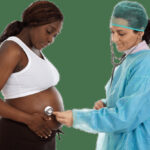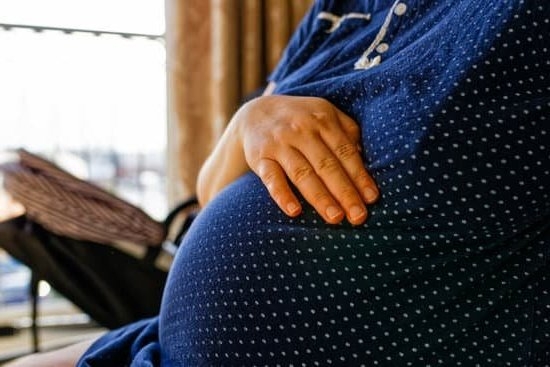Expectant mothers carrying multiple babies, known as multiple pregnancies, require special attention to their nutritional needs. A multiple pregnancy can pose unique challenges and risks, making proper nutrition especially crucial for the health of both the mother and the developing babies.
This article aims to provide valuable information on the importance of nutrition for expectant mothers of multiples, offering insights into the specific dietary requirements and strategies for managing common symptoms. By addressing these key areas, this resource seeks to support and guide women through their journey of carrying and nourishing multiple babies.
A multiple pregnancy refers to a situation in which a woman is expecting more than one baby at a time. This occurrence brings with it an increased likelihood of complications and health risks for both the mother and the unborn children.
Proper nutrition plays a critical role in mitigating these risks, making it essential for expectant mothers of multiples to understand their specific dietary needs. As such, this article will delve into the nutritional requirements for multiple pregnancies, providing insights into caloric intake, vital nutrients, and overall dietary considerations.
Throughout this resource, readers will find information on recommended supplements for expectant mothers carrying multiple babies as well as sample meal plans tailored to meet their unique nutritional needs. Additionally, tips for managing common pregnancy symptoms such as morning sickness will be addressed, along with lifestyle factors that contribute to a healthy multiple pregnancy.
By equipping women with reliable information and practical strategies, this resource aims to empower them to make informed decisions about their dietary choices during this special time in their lives.
Risks and Challenges of Multiple Pregnancies
Carrying multiple babies comes with an increased likelihood of complications compared to singleton pregnancies. Some of the risks and challenges associated with multiple pregnancies include a higher chance of premature birth, low birth weight, preeclampsia, gestational diabetes, and the potential need for cesarean delivery.
It’s important for expectant mothers of multiples to be aware of these risks and take proactive steps to mitigate them. Proper nutrition plays a crucial role in reducing the likelihood of these complications and promoting the health of both the mother and the babies.
The Importance of Proper Nutrition
Proper nutrition is essential for expectant mothers carrying multiple babies as it can help reduce the risks and challenges associated with multiple pregnancies. A well-balanced diet can support healthy fetal development, minimize the risk of complications such as preterm birth, and contribute to the overall well-being of both the mother and the babies. By consuming a variety of nutrient-dense foods, expectant mothers can provide their bodies with the necessary resources to support a healthy pregnancy.
Mitigating Risks Through Nutrition
One way to mitigate the risks associated with multiple pregnancies is through proper nutrition. Expectant mothers should aim to consume a diet that is rich in essential nutrients such as folate, iron, calcium, and protein. These nutrients play a critical role in supporting fetal growth and development while also helping to maintain the mother’s overall health during pregnancy.
Additionally, it’s important for women expecting multiples to consult with a healthcare professional or registered dietitian to develop a personalized meal plan that meets their specific nutritional needs. This will ensure that they are getting adequate caloric intake and essential vitamins and minerals required for a healthy multiple pregnancy.
The Multiple Pregnancy And Nutrition PDF available online offers valuable information on this topic, providing expectant mothers of multiples with guidance on how to optimize their nutrition for a healthy pregnancy.
Nutritional Needs for Multiple Pregnancies
Expectant mothers carrying multiple babies have unique nutritional needs that must be met to ensure a healthy pregnancy. Multiple pregnancies, such as twins or triplets, require a higher level of attention to nutrition due to the increased demands on the mother’s body. Proper nutrition is essential for supporting the growth and development of the fetuses, as well as reducing the risk of complications for both the mother and babies.
To meet the nutritional needs of a multiple pregnancy, it is crucial for expectant mothers to increase their caloric intake. A diet rich in vitamins, minerals, protein, and healthy fats can help support the healthy growth of multiple fetuses. It is important to ensure that these extra calories come from nutrient-dense foods rather than empty calories from sugary or processed foods.
- Increased caloric intake
- The need for additional vitamins and minerals
- Importance of protein and healthy fats
An adequate intake of protein is vital during a multiple pregnancy as it supports the growth and development of each fetus. Incorporating lean sources of protein such as poultry, fish, legumes, and dairy products into meals is essential. Additionally, healthy fats from sources like avocados, nuts, and fish can provide important nutrients for fetal development.
It is recommended that expectant mothers consult with their healthcare provider or a registered dietitian to develop an appropriate meal plan tailored to their individual nutritional needs during a multiple pregnancy. By focusing on proper nutrition, mothers can help reduce potential risks associated with carrying multiples while promoting optimal health for both themselves and their babies.
Sample Meal Plan for Multiple Pregnancies
During a multiple pregnancy, it is crucial for expectant mothers to maintain proper nutrition to support the health and development of their babies while also ensuring their own well-being. Carrying multiple babies can put added strain on a mother’s body and increases the risk of complications, making it essential to focus on meeting increased nutritional needs.
Proper nutrition can help mitigate some of the risks associated with multiple pregnancies, making it an important aspect for expectant mothers to consider.
One key component of proper nutrition for multiple pregnancies is ensuring an adequate intake of calories. Expectant mothers carrying twins or higher-order multiples often require more calories than those carrying a single baby. The American College of Obstetricians and Gynecologists recommends that women carrying twins consume an additional 600 calories per day during the second trimester and an additional 800 calories per day during the third trimester compared to women carrying a singleton pregnancy.
In addition to increased caloric needs, expectant mothers of multiples also have greater requirements for vitamins and minerals. These include folic acid, iron, calcium, and other essential nutrients that support fetal development and overall maternal health. Consuming a variety of nutrient-dense foods such as fruits, vegetables, lean proteins, whole grains, and healthy fats is important for meeting these increased nutritional needs.
| Nutritional Needs | Recommendation |
|---|---|
| Increased Caloric Intake | Additional 600-800 calories per day in the second and third trimesters for twin pregnancies |
| Vitamins and Minerals | Elevated requirements for folic acid, iron, calcium, etc. |
The Role of Supplements in Multiple Pregnancies
When it comes to multiple pregnancies, proper nutrition is crucial for the health and well-being of both the mother and her babies. However, meeting the increased demands for essential nutrients solely through diet can be challenging. This is where supplements play a vital role in ensuring that expectant mothers of multiples are getting all the necessary vitamins and minerals they need.
One of the key supplements recommended for women carrying multiple babies is prenatal vitamins. These supplements are specially formulated to provide an extra dose of essential nutrients such as folic acid, iron, calcium, and other vitamins and minerals crucial for a healthy pregnancy. In fact, a study published in the American Journal of Obstetrics and Gynecology found that taking prenatal vitamins reduced the risk of preterm birth in women pregnant with twins by up to 59%.
It’s important to note, however, that not all supplements are created equal. When choosing prenatal vitamins or other supplements, it’s essential to consult with a healthcare provider to ensure that they are safe and appropriate for your specific needs. Additionally, some women may require additional supplementation based on their individual nutritional requirements.
| Supplements | Potential Benefits |
|---|---|
| Prenatal Vitamins | Reduce risk of preterm birth in women carrying twins by up to 59% |
| Folic Acid | Reduces risk of neural tube defects in babies |
| Iron | Prevents anemia and supports healthy fetal growth |
Managing Nausea and Other Pregnancy Symptoms
Multiple pregnancies can bring about a multitude of symptoms, including nausea and morning sickness. Coping with these symptoms is important for the health and well-being of both the mother and her babies. Here are some tips for managing nausea and other pregnancy symptoms:
- Tips for coping with morning sickness: Morning sickness is a common symptom in early pregnancy, and it can be particularly challenging for women carrying multiples. To help cope with morning sickness, it’s important to eat small, frequent meals throughout the day. Keeping your stomach from getting too empty or too full can help alleviate nausea.
- Foods that can help alleviate nausea: Certain foods may help ease nausea during pregnancy. Ginger, for example, has been shown to be effective in reducing feelings of queasiness. Other options include bland carbohydrates like crackers or toast, as well as cold, tart beverages like lemonade or sparkling water.
- Nutritional strategies for managing other common symptoms: In addition to managing morning sickness, expectant mothers of multiples may also experience other common pregnancy symptoms such as heartburn, constipation, and fatigue. Consuming smaller meals throughout the day instead of large ones can help manage heartburn, while staying hydrated and eating plenty of fiber-rich foods can mitigate constipation.
By paying attention to their diet and implementing these strategies, women carrying multiples can improve their overall comfort during pregnancy and support the healthy growth and development of their babies. For more detailed information on this topic, you can refer to reputable nutrition PDFs specifically designed for expectant mothers of multiples.
Lifestyle Factors for a Healthy Multiple Pregnancy
Importance of Regular Exercise
Staying physically active during a multiple pregnancy is crucial for both the mother’s health and the well-being of the babies. However, it’s important to consult with a healthcare provider before engaging in any exercise regimen to ensure that it is safe for the specific pregnancy. Low-impact activities like walking, swimming, and prenatal yoga can help improve circulation, reduce swelling, and promote overall wellness.
Tips for Staying Hydrated
Proper hydration is essential during pregnancy, especially when carrying multiples. Dehydration can contribute to preterm labor and other complications. Pregnant women should aim to drink at least 8-10 glasses of water per day, and more if they are exercising or experiencing hot weather. In addition to water, consuming hydrating foods such as fruits and vegetables can contribute to overall fluid intake.
The Impact of Stress on Pregnancy and Ways to Manage It
Managing stress during a multiple pregnancy is crucial for the well-being of both the expectant mother and her babies. High levels of stress can have impacts on both physical and mental health. Techniques such as deep breathing exercises, meditation, and mindfulness practices can help reduce stress levels. Additionally, seeking support from friends, family, or professional counselors can provide valuable emotional support during this challenging time.
By paying attention to these lifestyle factors, expectant mothers carrying multiple pregnancies can contribute positively to their overall health and that of their babies as they prepare for the journey ahead.
Resources for Further Information
In conclusion, it is clear that multiple pregnancies present unique challenges and risks that require special attention to nutrition. Proper diet and nutritional intake can play a crucial role in mitigating these risks and promoting the health of both the expectant mother and her babies. As outlined in this article, there are specific nutritional needs for multiple pregnancies, including increased caloric intake, additional vitamins and minerals, as well as a focus on protein and healthy fats.
A well-balanced meal plan tailored to the needs of expectant mothers carrying multiples can help ensure that they are meeting their nutritional requirements. This includes not only main meals but also snack ideas to provide sustenance throughout the day. Additionally, the role of supplements in multiple pregnancies should not be overlooked, as they can provide essential nutrients that may be lacking from diet alone.
Moreover, managing pregnancy symptoms such as nausea and coping with lifestyle factors like stress and hydration are also vital aspects of ensuring a healthy multiple pregnancy. On top of that, seeking out reputable resources for further information, such as recommended books, websites, and nutrition PDFs specifically created for expectant mothers of multiples can provide valuable support and guidance throughout this journey.
Ultimately, prioritizing proper nutrition and seeking out reliable information can contribute significantly to the well-being of both the mother and her babies during a multiple pregnancy.
Frequently Asked Questions
What Is the Nutrition Guideline Pregnancy Multiples?
The nutrition guideline for pregnancy multiples focuses on ensuring that the mother receives enough essential nutrients to support the growth and development of multiple fetuses. This typically involves an increased intake of protein, iron, folic acid, calcium, and other vitamins and minerals to meet the needs of both the mother and the developing babies.
What Should Your Nutrition Be When Having Twins?
When having twins, nutrition should prioritize a well-balanced diet that includes a variety of nutrient-dense foods. This means incorporating lean proteins, whole grains, fruits, vegetables, and healthy fats into meals and snacks. Additionally, adequate hydration is important for supporting overall health and fetal development during a twin pregnancy.
What Should Be Avoided During Twin Pregnancy?
There are several things that should be avoided during a twin pregnancy to ensure the health and safety of both the mother and babies. These may include alcohol, unpasteurized dairy products, certain types of fish high in mercury, excessive caffeine intake, as well as any medications or supplements not approved by a healthcare provider.
It’s also recommended to avoid activities or situations that pose a higher risk for injury or complications during pregnancy.

Welcome to my fertility blog. This is a space where I will be sharing my experiences as I navigate through the world of fertility treatments, as well as provide information and resources about fertility and pregnancy.





